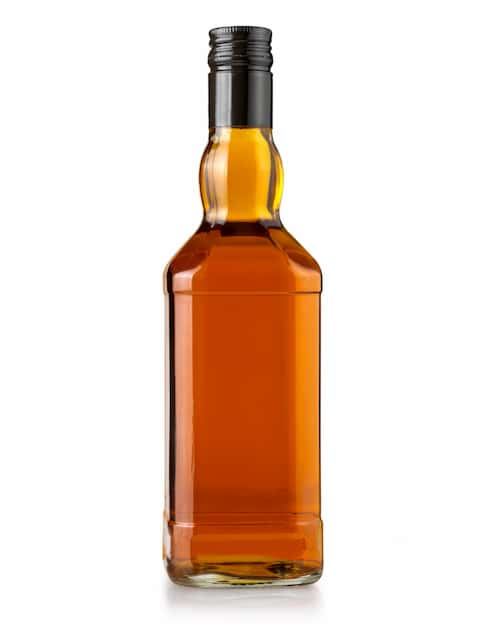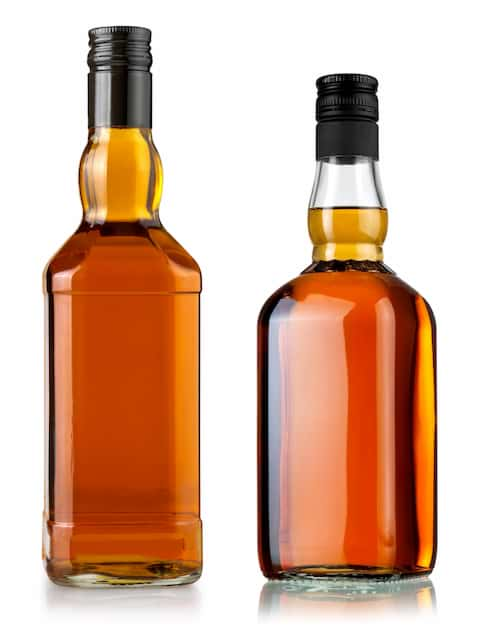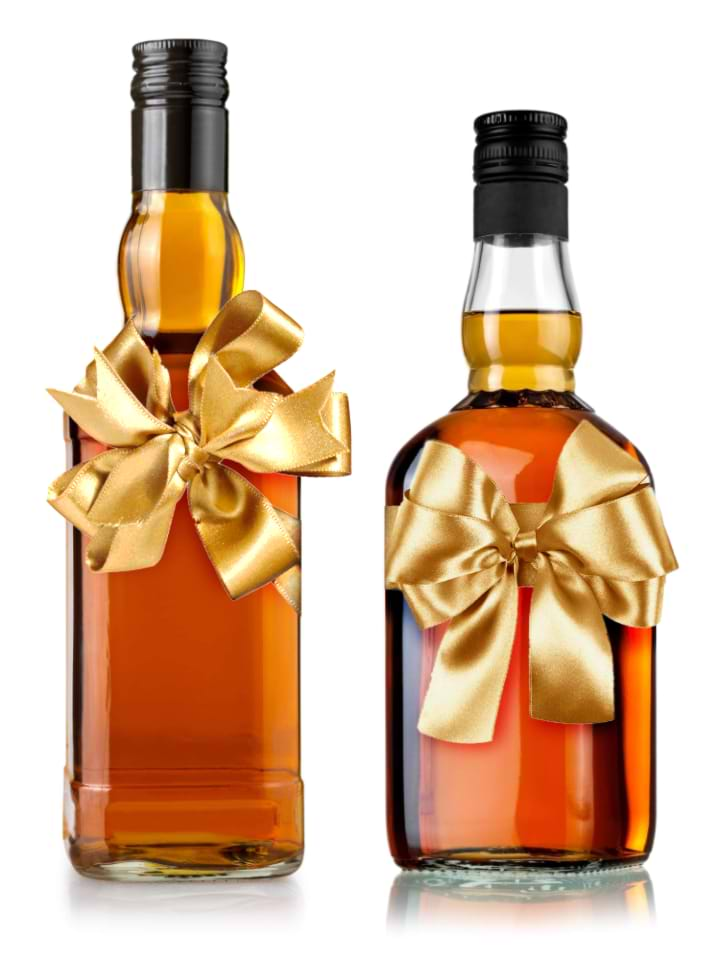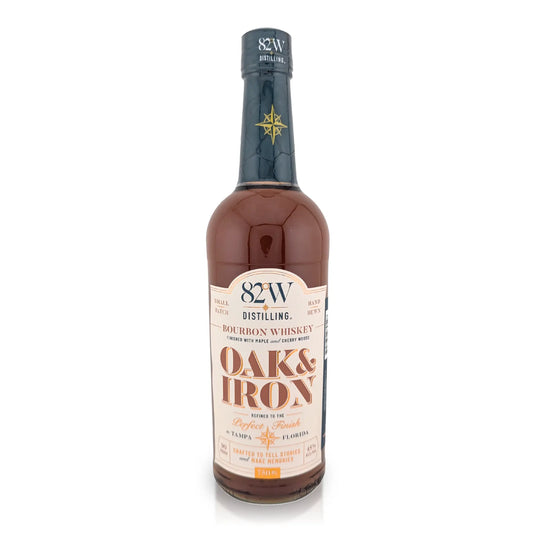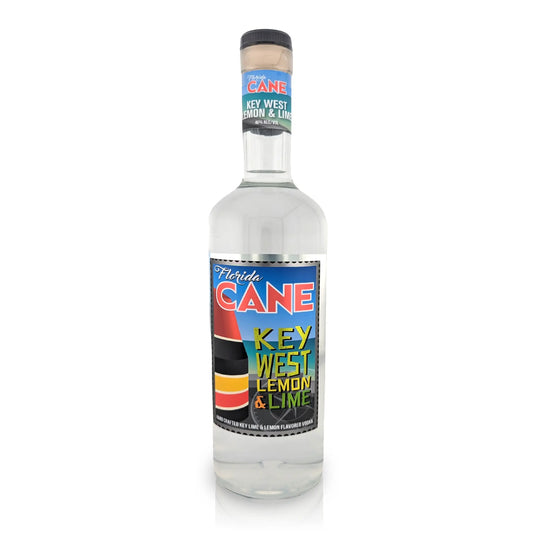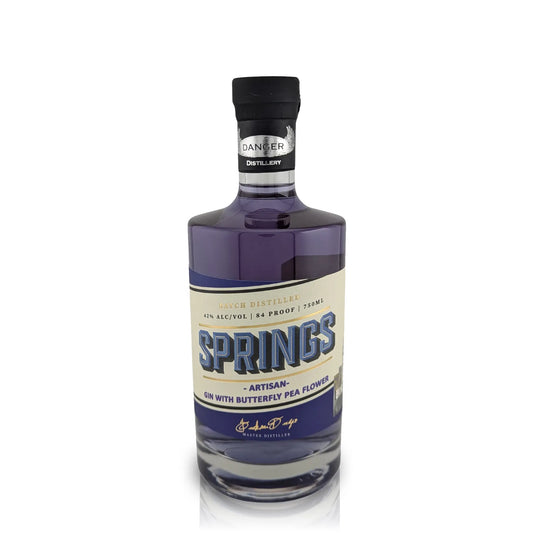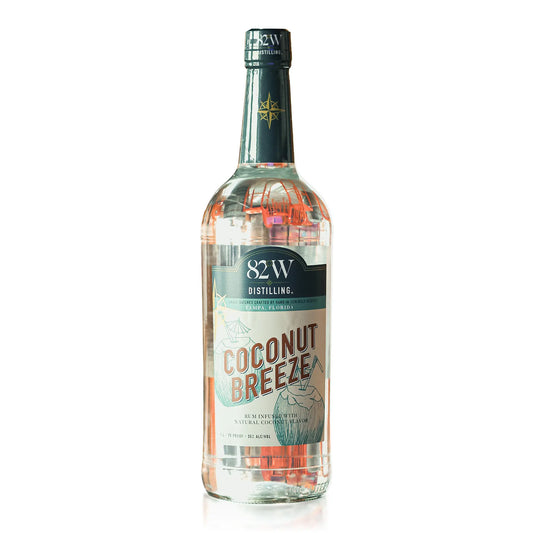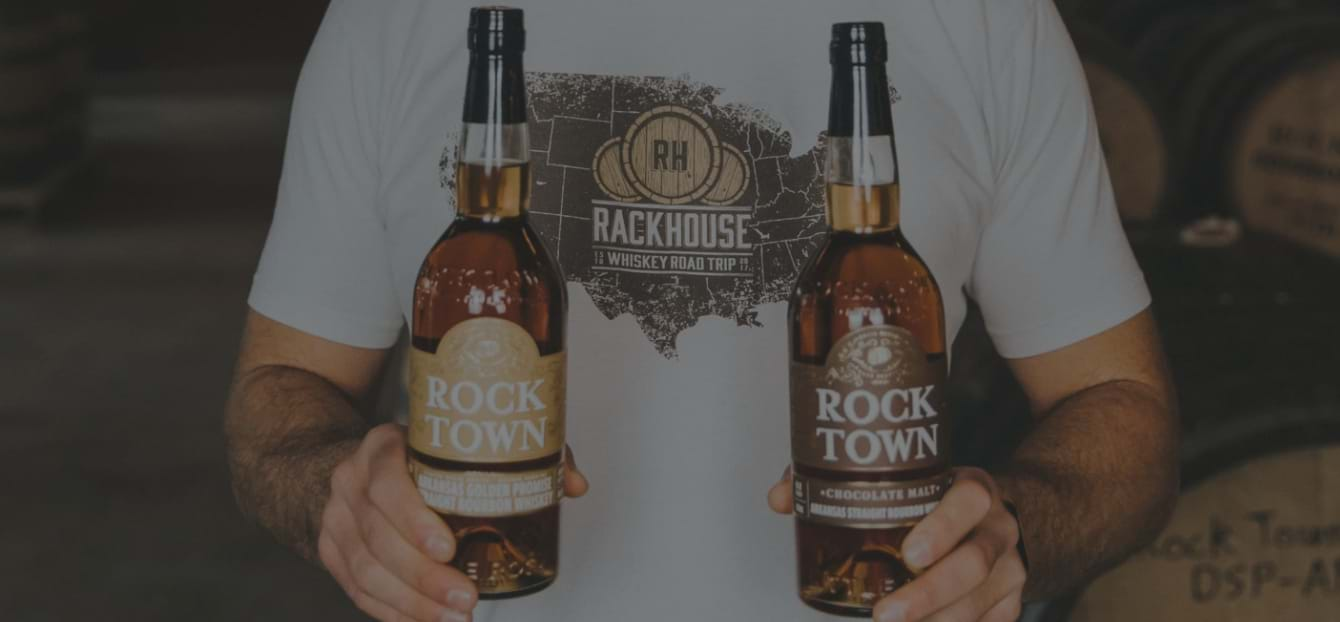
Looking to take your whiskey knowledge up a notch? If you’ve ever walked into a bar and glanced at the bottles upon bottles of browns and ambers, you know that there are many different types of whiskey to sample. What’s the difference between Irish whiskey and Scotch whisky? Is bourbon whiskey or a category of its own? What are the best cocktails to try for each whiskey style? Because whiskey is one of the most diverse distilled spirits, this complete guide to the different whiskey styles is a great starting point to becoming a seasoned connoisseur.
But first … all whiskey starts out the same
All whiskeys start out the same in how they’re made. Grain is fermented and then distilled and has to be at least 40 percent alcohol by volume once it makes its way to the bottle. Variations in barrel type, aging time, and distillation techniques are what contribute to the many different types of whiskey. The spelling depends on where it’s made and is linked to its country of origin. The Irish use the “e” and then American-made whiskeys followed suit. Whisky spirits are ones made in Scotland, Canada, Japan or anywhere else in the world. An easy way to remember the different spellings is to think of the countries. The countries with an “e” in their name (Ireland and the United States) get the whiskey spelling. The countries without an “e” in their name (Canada, Scotland and Japan) spell it whisky.
Five different types of whiskey you need to know
The three main differences between variations of whiskey are where they’re made, what they’re made from and what they taste like.
Irish Whiskey
The Irish have the fortune of being the very first whiskey distillers and coined the term “whiskey” from the Irish phrase uisce beatha, which means “water of life.” Irish whiskey must be made in Ireland, using a mash of malt, distilled with water and caramel coloring and then aged in wooden casks for three years before it’s ready for consumption. The fact that Irish whiskey malt is dried in a closed kiln away from fire and smoke distinguishes it from scotch. During the distillation process, great care is taken to keep the temperature low so the resulting flavor is delicately sweet like honey, toasty, and much smoother than its other whiskey counterparts.
Standard Irish whiskey cocktails: Irish whiskey is a versatile whiskey, which means you can’t go wrong with an Irish coffee or Irish slammer. The Irish tea party is a refreshing go-to cocktail.
Scotch Whisky
Did you know the very first record of whisky production dates all the way back to 1494? It’s no surprise then that the list of the most expensive whiskies in the world are full of single malt scotch. Scotch whisky is made from either malt (malted barley) or grain (corn or wheat), and can be either a single malt/grain whisky or a blended whisky. Single malt or single grain are made at a single distillery while blended whiskies are made at multiple distilleries and then mixed together. Although the smoky aspect defines scotch, each region in Scotland produces different and distinct flavor characteristics, which is particularly noticeable with single malts. Whisky making in Scotland is a very serious endeavor. Laws distillers must follow include aging the spirit in an oak barrel for at least three years and including an age statement on each bottle that reflects the youngest aged whisky used.
Standard Scotch whisky cocktails: The Penicillin is a classic Scotch cocktail. You also can’t go wrong with a Rob Roy, Rusty Nail or Blood and Sand.
American Whiskey
In the last 15 years, a craft whiskey movement has resulted in many different diverse styles creating almost a “whiskey renaissance” here in America. Historically, you see two main categories of American whiskey: bourbon and rye. One of the main differences between scotch and American whiskey? Scotch is always aged in used barrels while America’s native whiskeys must be aged in new, charred oak barrels which is where the aroma and a major source of flavor is derived.
- Bourbon. Historically associated with Kentucky and a huge player in the American whiskey industry. Contrary to popular belief, it can be made anywhere in the U.S. Bourbon has to be made with at least 51 percent corn and the rest either malted barley, rye or wheat. The flavor of bourbon tends to be sweet with soft spices, woodsy flavor and caramel or vanilla aftertaste. Standard Bourbon cocktails: Boulevardier, Whiskey Sour and Mint Juleps all showcase the best of bourbon.
- Rye. Thanks to up-and-coming distillers rye is making a significant comeback in the American whiskey industry. No surprise that rye whiskey is comprised of at least 51 percent rye with the rest consisting of malted barley and corn. Rye grain produces a distinct flavor of spices and fruit notes which means it has a spicier flavor than the smooth and sweet bourbon. Standard Rye whiskey cocktails: The Manhattan and Sazerac are great cocktails to start with for a good rye whiskey.
- Tennessee. Don’t make the mistake of saying Tennessee whiskey is bourbon, especially not to a Tennessean. Distilleries in Tennessee have perfected their style and use a filtering step known as the Lincoln County Process prior to aging the whiskey. Interesting tidbit: Tennessee whiskey is filtered through charcoal eliminating impurities and jumpstarting the aging process. Standard Tennessee whiskey cocktails: Start with either a Tennessee Whiskey Mule or Tennessee Highball for a good introduction to Tennessee whiskey.
Canadian Whisky
Our neighbors to the north have been perfecting the art of whisky for a very long time. Because of its distinctive style, it’s shocking that anyone would snub Canadian whisky or view it as inferior to Scotch or bourbon. Almost all Canadian whisky is a blend of various grain whiskies of different ages. The complicated process calls for a master blender to create the smooth flavor you taste in the bottle. For that reason Canadian distillers are known for their blending skills and can rival the best Scotch blenders. Canadian whisky must be aged for at least three years but has no requirements on the type of barrel distillers use. It contains a high percentage of corn making it light-bodied, versatile and very mixable. If you’re in Canada, ask for a “rye” as this is the commonly used term for Canadian whisky.
Standard Canadian whisky cocktails: If you’re up north, try the Canadian Cocktail or a Royal Old Fashioned.
Japanese Whisky
The Scots must be doing something right because Japanese whisky was created to mimic the flavor of scotch as closely as possible. They even use similar distilling methods. Commercial whisky distilling in Japan began in the 1920s and continues today. Japanese whisky is known for its impeccably high standards and makes an excellent partner in crime when added to a standard mixed drink.
Standard Japanese whisky cocktails: Opt for a Japanese Whisky Smash or a Japanese Whisky Ginger Highball to familiarize yourself with this exotic whisky.


